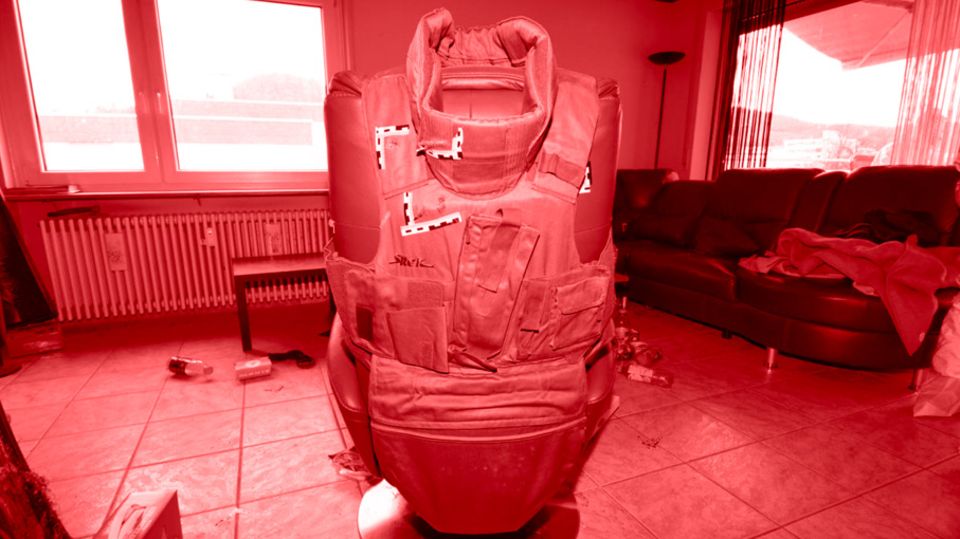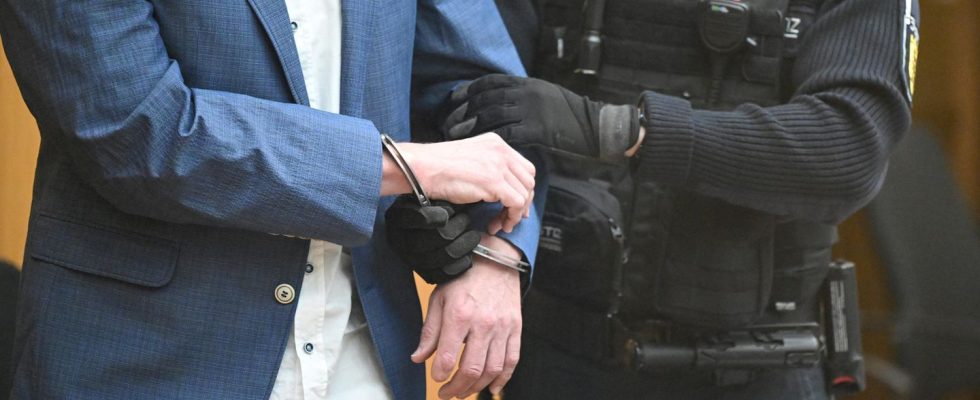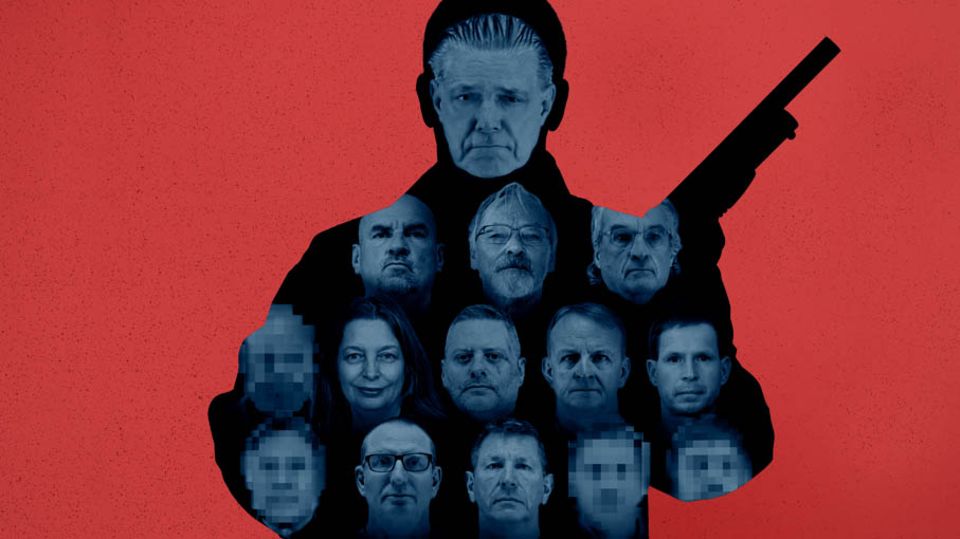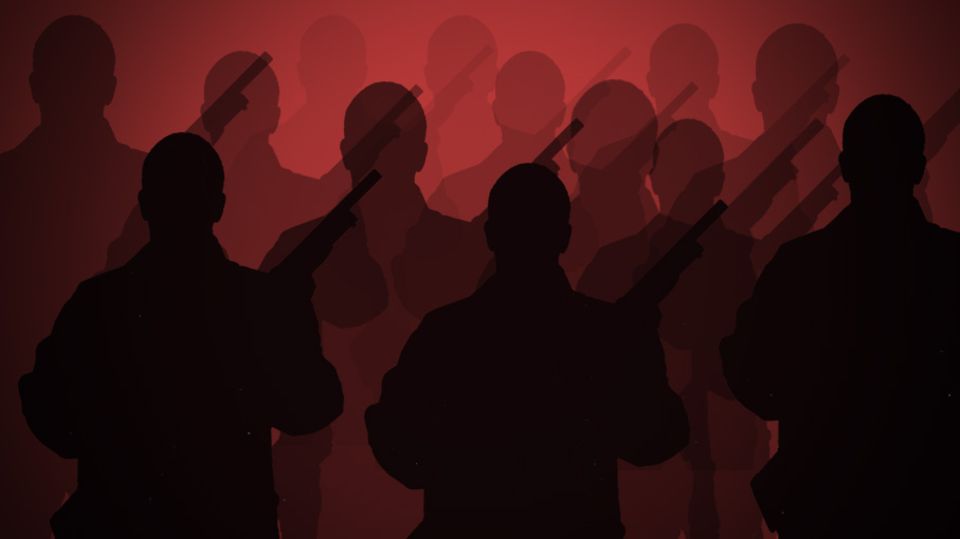In the mammoth trial against the alleged terrorist group around Prince Reuss, Wolfram S. speaks in detail before the Stuttgart Higher Regional Court. His strategy quickly becomes clear.
One after the other they enter meeting room one of the Stuttgart Higher Regional Court. The bulletproof glass that separates them from their lawyers and the audience is several centimeters thick. The nine men wear handcuffs, some shield their faces from the cameras with notepads. More than a dozen judicial officers appear to be watching over their every move.
In addition to a dozen journalists, relatives and friends of the defendants are also in the meeting room. The girlfriend of the defendant Marco van H., in her late 40s, wears a T-shirt under her red jacket: “I believe in you.” I believe in you.
It’s day two of the mammoth trial against nine suspected members of Henry XIII’s terrorist group. Prince Reuss. The Federal Prosecutor’s Office assumes that they planned to overthrow the government by force of arms. In Stuttgart, suspected members of the group’s own military unit are in the dock. Men who, among other things, are said to have set up armed homeland security companies in order to take control of the country after a coup.
This Monday in Stuttgart gives an impression of the current mood of men. They chat with each other, Markus L. and Matthias H smile at each other, Steffen W. sits bored in his chair. Considering that they are accused in one of the largest terror trials in the history of the Federal Republic of Germany, the men behind the bulletproof glass seem surprisingly calm.
Reichsbürger trial in Stuttgart: More questions than answers
But one of them gives a nervous impression. Wolfram S., in his mid-50s, with thinning hair, surprisingly announced at the start of the trial that he wanted to comment on himself and the matter. The accuser’s accusation against him: membership in the group, membership in a terrorist organization. Among other things, he is said to have procured laptops, set up IT infrastructure and signed a confidentiality agreement that contained the threat of a death penalty.
Wolfram S. fiddles with his microphone, takes a breath, and then begins his statement, which will last the whole day. And in which, as a listener, you end up with more new questions than answers.
He had a happy youth. The father was a doctor and the mother was a housewife. He grew up between meadows and fields, played in a band and was constantly involved with engines and other technology. “I was a why kid,” says S. “I dismantled everything to understand how it worked.”
S. paints a picture of himself as someone who refused military service and volunteered to help leukemia patients. And who claims to have had nothing to do with weapons or violent plans of a suspected terrorist group.
S. says: “I have problems with camouflage clothes.”
He says: “I am politically left-green.”
The court seems unconvinced by the information provided by the alleged Reich citizen
The court confronts S. with his participation in group meetings and his alleged role as its IT administrator. Among other things, he is said to have created databases for members. The presiding judge asks him when he first heard the name of one of the group’s alleged leadership members, Rüdiger von Pescatore. Or whether he was present at certain group meetings. He asks dozens of questions like this.
At points where things get really interesting for the criminal trial, S. usually says: “I can’t remember.”
When asked by the judge whether S. had ever thought about the fact that people could have died in the group’s plans, he answered: “Definitely no.” When armed companies were discussed at meetings, he thought they were talking about the Bundeswehr. At meetings with the other defendants he mainly talked about harmless topics and private matters. This, it seems, is the defense strategy of the Wolfram S: heard nothing, seen nothing.
The court seems unconvinced. The chairman keeps looking irritated towards the dock.
When he was presented with a non-disclosure agreement from the group at a meeting, with the name “Prince Reuss” on it and the note that failure to comply would result in the “death penalty,” he had to laugh, says S. “I thought: That’s it like the Shoe of Manitu, where the blood brotherhood is entered into at the beginning.” And further: “If it says the death penalty, I’ll sign it. If they kill me, they won’t have an IT person anymore.”
S. laughs a lot that day. However, on this second day of the trial it also becomes clear that S. must have been a person with fears. He claims to have seen dangers lurking everywhere: a global power outage, data misuse by large corporations, or solar storms and hacker attacks. Corona made him even more thoughtful about what a “fragile system we live in.”

Markus L. is said to have holed up behind this swivel chair – and fired at police officers
02:25 minutes
The so-called “Day
S. says he believed it himself at some point.
In conclusion, the court cannot clarify Wolfram S.’s role that day. Many question marks remain. And the certainty that this mammoth trial with all its protagonists, confusion and witnesses will probably drag on for a long time.



